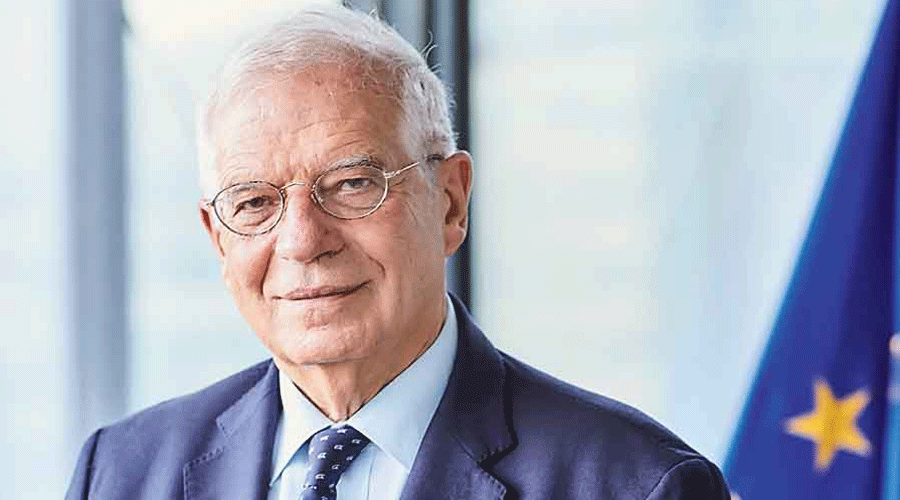The European Union's foreign policy chief, Josep Borrell, on Friday hit back at criticism of the bloc's energy policy, telling DW that EU states have cut their imports of Russian gas by 50% since the invasion of Ukraine began.
Borrell was asked whether, by refusing to cut themselves off from Russian energy altogether, EU states are still funding Russia's war machine.
"It [Russian energy imports] was 40% before the war, it's now 20% ... but no one can ask European economies to cut gas supplies overnight," Borrell said. "We cannot do miracles."
Despite the import cuts, EU member states remain dependent on Russian energy to power their economies and homes.
EU states this week agreed to cut their gas usage by 15% in case the Kremlin turns off supplies to the European Union in retaliation for sanctions. The austerity measures will help energy firms to refill gas storage facilities across the bloc in time for winter.
Punitive tariffs not an option
Asked why Brussels had not opted to levy punitive tariffs on Russian gas to reduce the flow of funds to Moscow's war chest, Borrell said the proposal had been seriously considered but rejected.
He said EU countries made a "stronger decision" to "stop buying [Russian] oil from the end of the year, and now we're in the process of stopping buying gas."
Borrell said further decreases in Russian gas imports would happen "quickly."
The European Union's chief diplomat also denied claims that Russia's economy has been relatively unscathed so far by Western sanctions, while EU consumers are already feeling the pinch of high energy bills.
Sanctions will hurt Russian economy
"More important than that [cutting gas] is cutting the links of the Russian economy with the rest of the world," Borrell said.
"The war machine is not only working with money — it is also working with technology," he added, citing Russian tanks that rely on Western components.
Borrell said Western sanctions now meant that Russian weapons firms can no longer buy vital components "so they will not be able to build another tank like this."
He said Russia's gross domestic product is on course to contract by 10% this year, which he said would lead to "the biggest recession ... since the end of the Soviet Union."
Very soon, Russian President Vladimir Putin will "have to choose between having guns and having butter for the people," Borrell told DW.











